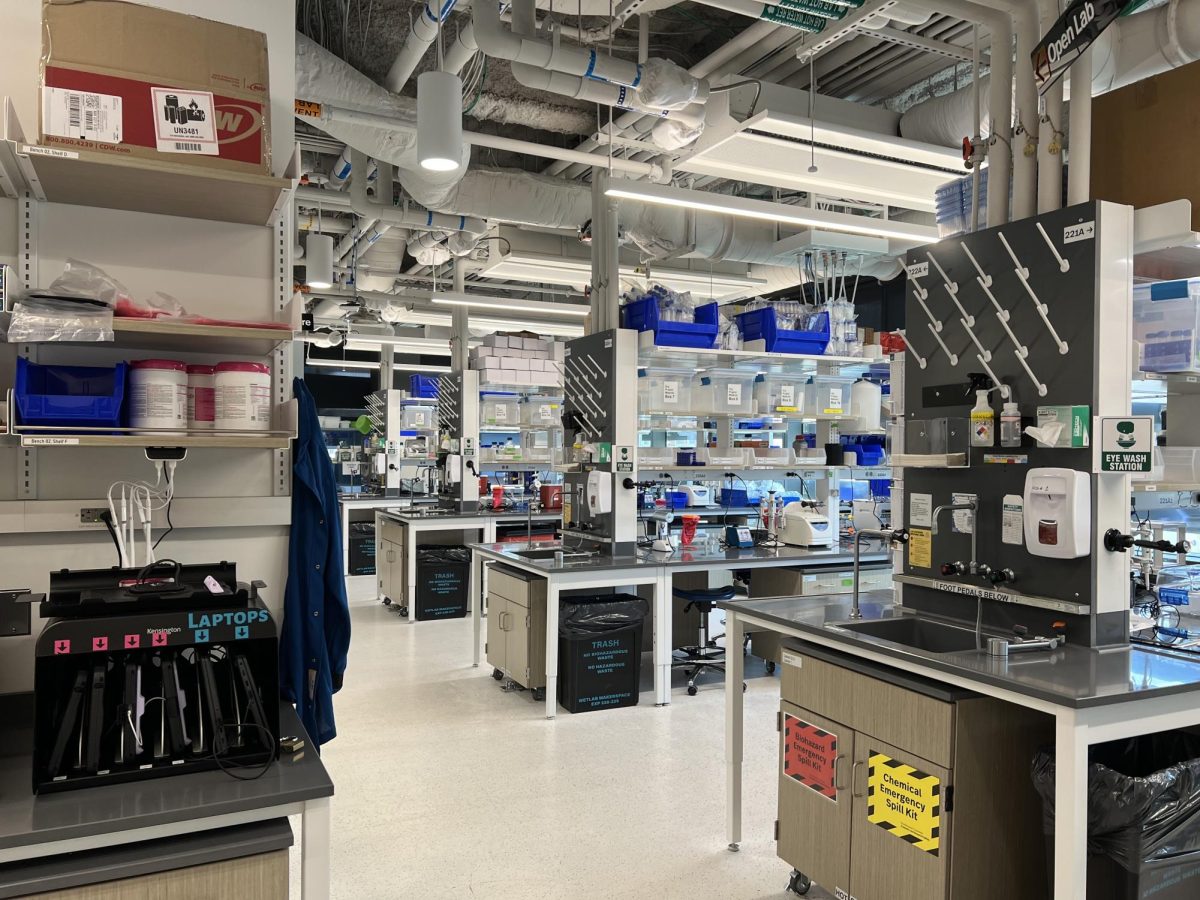By Stephen Babcock and Ricky Thompson
After a summer transition period that left University Health and Counseling Services (UHCS) largely short-staffed, the center responded this fall by hiring at least 15 new staff members, said UHCS Executive Director Roberta Berrien.
The new staff members were hired to fill 14 positions vacated over the past nine months, among other new positions created by an increased health center budget. The increase resulted from the merging of the Lane Health Center and the University Counseling Center last year.
Berrien said although all of the positions have been filled, some of the new hires are not full-time staff. She said the center was still testing what types of positions provide a good “mix” of clinical services, administration and specialists.
“Although [the new] positions are filled in a sense now, we’re not short-staffed,” Berrien said. “They’re not permanently filled, but it’ll give us a better idea as we go along of the kind of person we need in those jobs. So we purposely didn’t fill them permanently yet.”
Some of the filled positions include the center’s medical director, a new counselor who will focus on alcohol counseling, other counselors, physicians and clinical nurse psychiatric specialists.
One of the new hires was Dr. Robert Klein, who now oversees nurses and counselors providing mental health services as director of behavioral health.
Klein said he read of the staff shortages after arriving, but has had a smooth transition personally.
“It was clear that I had arrived at a situation where a great deal of work had been done,” he said. “It’s clear that [UHCS] is a coming together of competent clinicians and administration.”
He credited Berrien and Senior Vice President Philomena Mantella, who oversees the health center for the university administration, with providing resources and “excellent management.”
Another new hire, Kimberly Bortle, who will serve as the nurse manager, said she came to her job with a sense she could make the center better. Bortle said she oversaw a “culture change” similar to the one the health center recently experienced.
“I think I learned a lot from [prior] experience – things that I did well and things that I could have done better with,” she said. “I certainly thought I could contribute to [UHCS].”
The health center still faces a number of challenges. Berrien said although the positions have been filled, she is still unsure how the final staff will look.
“Some of these folks are terrific, but only want to work part-time,” she said. “So I’m kind of reluctant to lose them. On the other hand there are some good reasons for wanting full-time people in the counseling area.”
Outreach programs to students, one of the programs staff complained had suffered as a result of the changes, are also still in transition.
Klein said the counseling program has already overseen commitments to a number of new programs, including partnering with an alcohol prevention program for which the university recently received a grant, as well as establishing connections with the Center for Spiritual Life and the Office of Student Affairs to plan programs.
Despite the seemingly positive picture, a counselor who asked to remain anonymous said the center has not full committed to outreach programs.
“There’s still not any room to do outreach,” the source said. “Outreach isn’t part of our job right now.”
The source said because the money had been provided for outreach programs by grants, individual counselors are not allowed to organize programs within their own job description.
“There’s no move to look at what’s really needed so we can tailor our programs to that,” the source said. “I don’t think students are looking for more alcohol screening.”
Berrien said she still sees potential for more outreach.
“Having our health promotions person who has been here for 25 years








